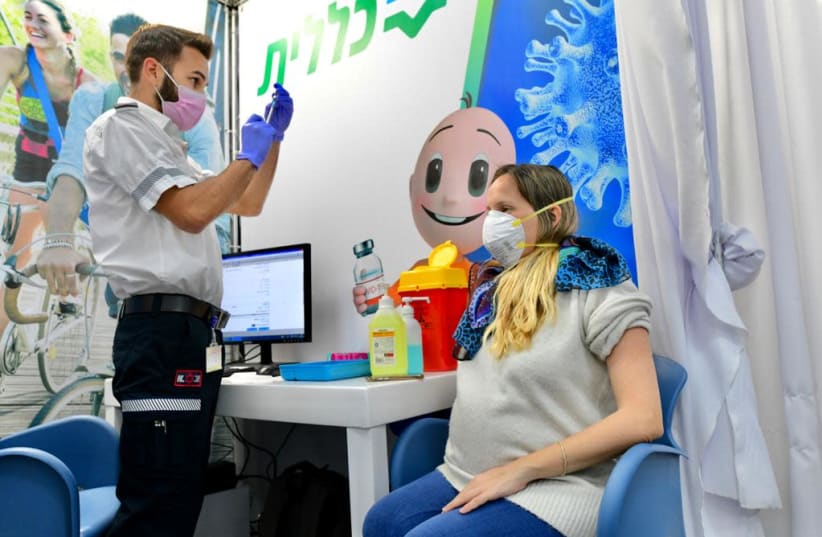Does wearing masks have any impact on pregnant women? A new study by researchers from Ben-Gurion University of the Negev, Sheba Medical Center at Tel Hashomer and Hadassah-University Medical Center suggests that it might.
The study, which was published in the International Journal of Obstetrics & Gynecology, considered some 1,800 women who gave birth between April and June 2020, when people in Israel were required to wear masks and compared the data with the same period in 2019 as well as from previous years starting from 2011.
“We found two laboratory outcomes and two clinical outcomes,” Lior Friedrich from BGU, the corresponding author of the study, explained to The Jerusalem Post.
“Regarding the former, we registered more elevated hemoglobin levels and decreased platelet levels,” he said. “As far as clinical outcomes are concerned, we saw a lower rate of preterm births, and a higher rate of bleeding after delivery.”
Hemoglobin is a blood protein that transports oxygen to the tissues. Platelets are the smallest blood cells and their function is to form blood clots to help the body stop bleeding.
Friedrich pointed out that the study does not prove causality between wearing a mask and these phenomena.
“At the moment the only thing we can say is that they occurred at the same time,” he pointed out.
However, the researchers did formulate a hypothesis about the correlation between the events.
“Wearing a mask may create a hard-to-ventilate space leading to blood carbon dioxide accumulation and decreased oxygen levels,” Friedrich said. “This results in hemoglobin production [responsible for carrying oxygen through the bloodstream] and lower platelet levels [responsible for blood clotting].
“Higher hemoglobin levels are associated with lower rates of preterm births, while lower platelets levels may lead to higher rates of bleeding after delivery [postpartum hemorrhage].”
Friedrich stressed that nobody should interpret the results of their research as a recommendation not to wear a mask.
“This is all very initial, while we know that masks are great to protect people from COVID-19,” he noted.
As the next step of the study, the researchers are going to analyze the data from pregnant women who are giving birth in the similar period this year, considering that from April 18 the requirement of wearing masks outdoors was canceled.
“I believe this study is interesting because it looks into the impact of a very significant phenomenon. One day all of us were forced to start wearing a mask. What kind of impact has it had on our health? This is what we are exploring,” he concluded.
